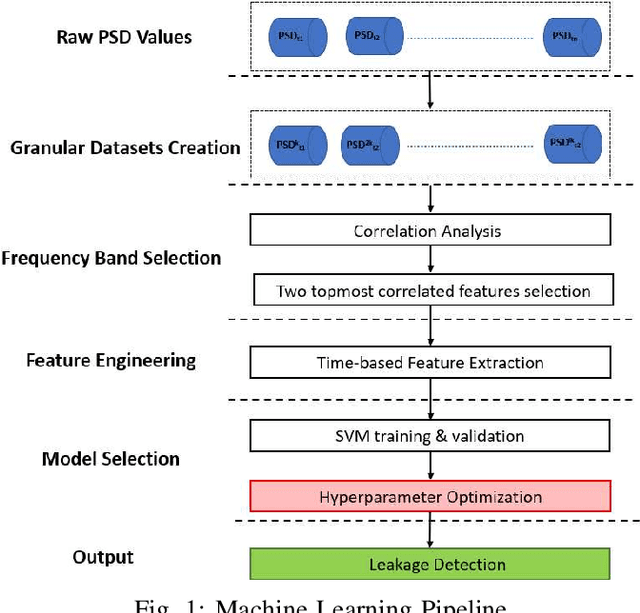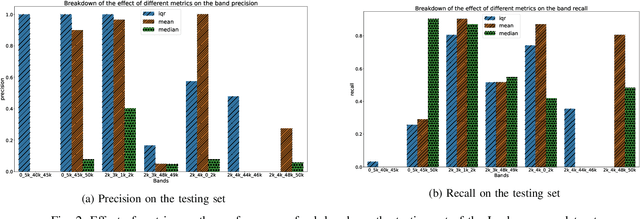Sound Event Classification in an Industrial Environment: Pipe Leakage Detection Use Case
Paper and Code
May 05, 2022



In this work, a multi-stage Machine Learning (ML) pipeline is proposed for pipe leakage detection in an industrial environment. As opposed to other industrial and urban environments, the environment under study includes many interfering background noises, complicating the identification of leaks. Furthermore, the harsh environmental conditions limit the amount of data collected and impose the use of low-complexity algorithms. To address the environment's constraints, the developed ML pipeline applies multiple steps, each addressing the environment's challenges. The proposed ML pipeline first reduces the data dimensionality by feature selection techniques and then incorporates time correlations by extracting time-based features. The resultant features are fed to a Support Vector Machine (SVM) of low-complexity that generalizes well to a small amount of data. An extensive experimental procedure was carried out on two datasets, one with background industrial noise and one without, to evaluate the validity of the proposed pipeline. The SVM hyper-parameters and parameters specific to the pipeline steps were tuned as part of the experimental procedure. The best models obtained from the dataset with industrial noise and leaks were applied to datasets without noise and with and without leaks to test their generalizability. The results show that the model produces excellent results with 99\% accuracy and an F1-score of 0.93 and 0.9 for the respective datasets.
 Add to Chrome
Add to Chrome Add to Firefox
Add to Firefox Add to Edge
Add to Edge